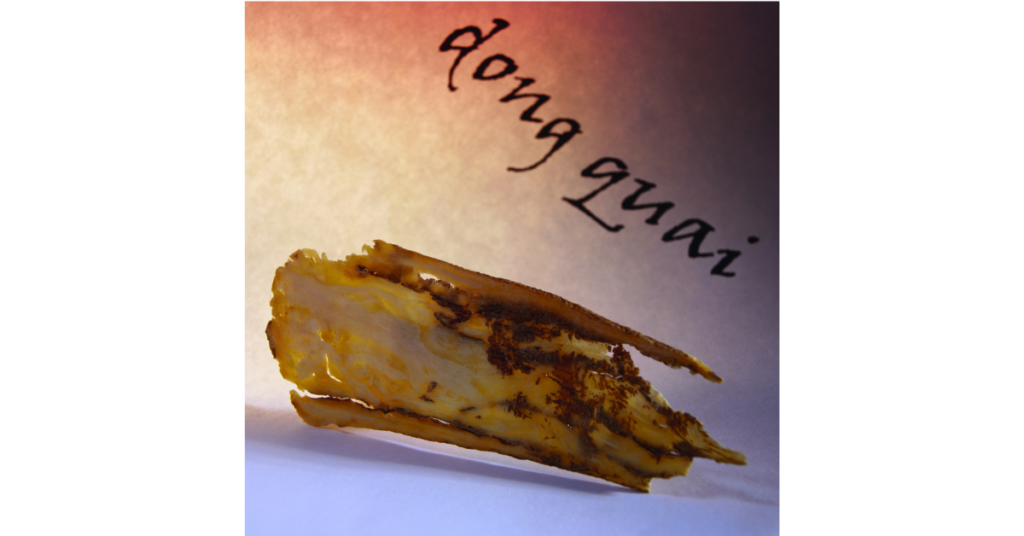Dong Quai (Dan Gui) – Herbal Remedy
Dong Quai (Angelica Sinensis)
Dong Quai is a Chinese herb derived from the root of Angelica sinensis (Chinese angelica). A staple of eastern medicinal practice for thousands of years, Dong Quai is recommended for the treatment of female disorders such as menstrual cramps, pre-menstrual syndrome (PMS), and to relieve symptoms associated with menopause.
The root is an ingredient of ‘Four Things Soup’ (sometimes known as Dang Gui Four), the most widely used woman’s tonic in China.
Uses
Angelica sinensis is often combined with Bupleurum chinensis and Paeonia lactiflora for pre-menstrual irritability and debility and with Corydalis ambigua and Paeonia lactiflora for dysmenorrhoea. Used alone, Angelica sinensis does not produce oestrogen-like responses as measured by vaginal maturation or endometrial thickness. However it is considered beneficial when combined with Rehmannia glutinosa or Astragalus membranaceus in the treatment of hot flushes and debility associated with menopause.
Dong Quai contains vitamins E, A, and B12, and at least six coumarin derivatives that may exert helpful antispasmodic and vasodilatory effects. Antispasmodics are a remedy for menstrual cramps (suppresses smooth muscle contraction). The essential oil in dong quai contains Ligustilide, butylphthalide, and numerous other minor components. Ferulic acid and various polysaccharides are also found in the root. These elements may prevent spasms, reduce blood clotting and relax peripheral blood vessels.
Dong Quai contains coumarins that promote photosensitivity and may cause dermatitis.
Cautions
Dong Quai is suggested only for use up to 6 months by healthy women. Pregnant women, and women with excessive menstrual flow, should avoid using this herb altogether.
Herbal remedies, such as conventional medications, carry a risk of adverse reactions. Factors contributing to the potential toxicity of herbs include misidentification of the plant, variability in the time and place of collecting the plant, use of the wrong part of the plant, incorrect storage, contamination during preparation, and inconsistency in nomenclature and labelling of the final product.
Women seeking oestrogen maintenance and menopausal symptom control for periods longer than 6 months, please refer to Natural HRT, Phytoestrogens, Red Clover, and Conventional HRT.
For symptom control for short periods (less than 6 months), please consider Black Cohosh and discuss this with your practitioner.


